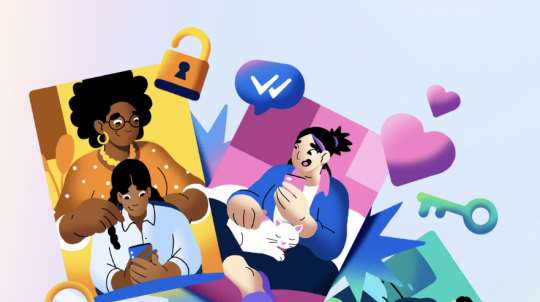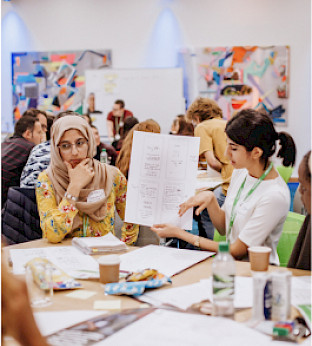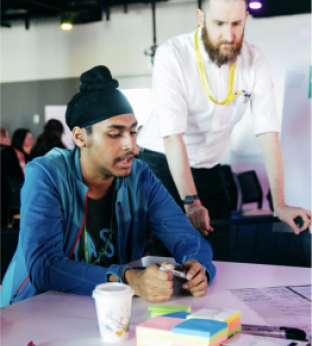“
I’m figuring out the kind of person I want to be.
Cece

Adapt to and support young people as they grow
Designing digital apps for young people is designing for change. Paths are not linear.
For younger people who are not yet aware of the potential downsides of online services, digital app developers and designers might provide support through intervention, while also providing educational opportunities to learn about potential downsides and build skills in the background. Ongoing and consistent support is important to help build skills and become more empowered; the level of support might reduce thoughtfully as self-efficacy and autonomy increase over time.
Just because some older teens might be more autonomous, it doesn’t mean they don’t need support. For example, their needs might be more centered on on-demand support and education when a specific occasion arises. A sense of autonomy may also lead to complacency before they have sufficient life experience. As teens who might be more familiar with digital experiences or be more mature, it’s important to also give them the opportunity as role models to share their knowledge with their peers - since we’ve learned that younger teens appreciate learning from their older peers or siblings as well.
Digital app developers and designers can help support young people with guardrails and facilitate their best interests towards safe and increasingly independent interactions online.





